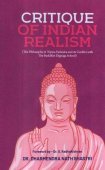Vaisheshika, Vaiseshika, Vaiśeṣika, Vaishesika: 19 definitions
Introduction:
Vaisheshika means something in Hinduism, Sanskrit, Jainism, Prakrit, Marathi, Hindi. If you want to know the exact meaning, history, etymology or English translation of this term then check out the descriptions on this page. Add your comment or reference to a book if you want to contribute to this summary article.
Vaisheshika has 18 English definitions available.
The Sanskrit term Vaiśeṣika can be transliterated into English as Vaisesika or Vaisheshika, using the IAST transliteration scheme (?).
Alternative spellings of this word include Vaisheshik.
Languages of India and abroad
Sanskrit dictionary
[Deutsch Wörterbuch]
Source: Cologne Digital Sanskrit Dictionaries: Böhtlingk and Roth Grosses Petersburger WörterbuchVaiśeṣika (वैशेषिक):—(von viśeṣa) gaṇa vinayādi (svārthe) zu [Pāṇini’s acht Bücher 5, 4, 34.]
1) adj. (f. ī) a) besonder, specifisch, eigenthümlich (Gegens. sāmānya) [Suśruta 1, 96, 20. 97, 2.] ākāśasya tu vijñeyaḥ śabdo vaiśeṣiko guṇaḥ [Bhāṣāpariccheda 43. 90.] sattvādīni dravyāṇi na vaiśeṣikā guṇāḥ [Nīlakaṇṭha 43.] — b) vorzüglich, hervorragend, ausserordentlich: eka eva tu kartavyo (puraḥsaraḥ) yasminvaiśeṣikā guṇāḥ [Mahābhārata 7, 148. 12, 1658.] jñāna [11874.] anyāmanyāṃ dhanāvasthāṃ prāpya vaiśeṣikīṃ narāḥ [Spr. (II) 375.] — c) zu den Besonderheiten der Vaiśeṣika in Beziehung stehend, von ihnen handelnd, auf ihnen beruhend: prakaraṇa [Oxforder Handschriften 353,b, No. 839.] naya [Bhāṣāpariccheda 104.] mata [140.] kaṇādena tu saṃproktaṃ śāstraṃ vaiṃśeṣikaṃ mahat [SĀṂKHYAPR. 6, 14.] [Madhusūdanasarasvatī’s Prasthānabheda] in [Weber’s Indische Studien 1, 13, 7. 8. 18, 27.] [Nīlakaṇṭha 52.] —
2) m. ein Anhänger des Vaiśeṣika-Systems [Hemacandra’s Abhidhānacintāmaṇi 862.] [Kapila 1, 25.] Schol. zu [1, 19.] [morgenländischen Gesellschaft 7, 307,] [Nalopākhyāna 3.] [Weber’s Verzeichniss 160, 15. fg. No. 626.] [MÜLLER, SL. 84.] [KUSUM. 29, 13.] [Burnouf 568.] —
3) n. a) Besonderheit [KAṆ. 10, 2, 7.] — b) das Vaiśeṣika-System: nyāyavaiśeṣikābhyām [SĀṂKHYAPR. 3, 21.] [Nīlakaṇṭha 4, 52.] [Rgva tch’er rol pa ed. Calc. 179, 5.] sūtra (hierher oder zu
2) [HALL 27. 64.] sūtropaskara [68.]
Sanskrit, also spelled संस्कृतम् (saṃskṛtam), is an ancient language of India commonly seen as the grandmother of the Indo-European language family (even English!). Closely allied with Prakrit and Pali, Sanskrit is more exhaustive in both grammar and terms and has the most extensive collection of literature in the world, greatly surpassing its sister-languages Greek and Latin.
See also (Relevant definitions)
Starts with: Vaisheshika-sutra, Vaisheshikadarshana, Vaisheshikadishaddarshanavisheshavarnana, Vaisheshikaguna, Vaisheshikamata, Vaisheshikaratnamala, Vaisheshikasutropaskara.
Ends with: Avaisheshika, Harindravaisheshika, Nyayavaisheshika, Rasavaisheshika.
Full-text (+254): Kanada, Padartha, Aulukya, Paramanu, Vishesha, Vaisheshikadarshana, Vaisheshika-sutra, Pramana, Guna, Paramanukaranavada, Tarkakaumudi, Karma, Vaisheshikaratnamala, Anekashraya, Shrikara, Vidyadhara Mishra, Anekashrita, Shatshastrem, Sneha, Kanatam.
Relevant text
Search found 101 books and stories containing Vaisheshika, Vaiseshika, Vaiśeṣika, Vaisesika, Vaiśēṣika, Vaishesika; (plurals include: Vaisheshikas, Vaiseshikas, Vaiśeṣikas, Vaisesikas, Vaiśēṣikas, Vaishesikas). You can also click to the full overview containing English textual excerpts. Below are direct links for the most relevant articles:
The validity of Anumana (inference) in Nyaya system (by Babu C. D)
Chapter 4.1 - Amalgamation of Nyaya-Vaisheshika
Chapter 4.5 - Conclusion (Nyaya and Vaisheshika)
Brahma Sutras (Shankara Bhashya) (by Swami Vireshwarananda)
Chapter II, Section II, Adhikarana III < [Section II]
Chapter II, Section II, Adhikarana II < [Section II]
Chapter II, Section I, Introduction < [Section I]
Jainism and Patanjali Yoga (Comparative Study) (by Deepak bagadia)
Part 8.2 - Introduction to Vaisesika Darsana < [Chapter 1 - Introduction]
Part 8 - A Comparative Study of different Indian Philosophies < [Chapter 1 - Introduction]
Part 1 - Introduction to Indian Philosophy < [Chapter 1 - Introduction]
Vaisheshika-sutra with Commentary (by Nandalal Sinha)
Sūtra 10.2.7 (Efficient causes declared) < [Chapter 2 - Of Other Forms of Cognition]
Sūtra 8.2.3 (Substance, Attribute and Action are called artha or object) < [Chapter 2 - Of Doubly Presentative Cognition]
Vaisesika Doctrines (in the Nyaya Works) (by Diptasree Som)
Chapter 4 - Treatment of the Vaisesika in Navyanyaya
Chapter 3 - Views of Uddyotakara, Vacaspati Misra and others
Nyaya-Vaisheshika categories (Study) (by Diptimani Goswami)
Importance of Abhāva in Nyāya-Vaiśeṣika System < [Chapter 7 - Abhāva (Non-existence)]
Abhāva as a Separate Category < [Chapter 7 - Abhāva (Non-existence)]
Related products



